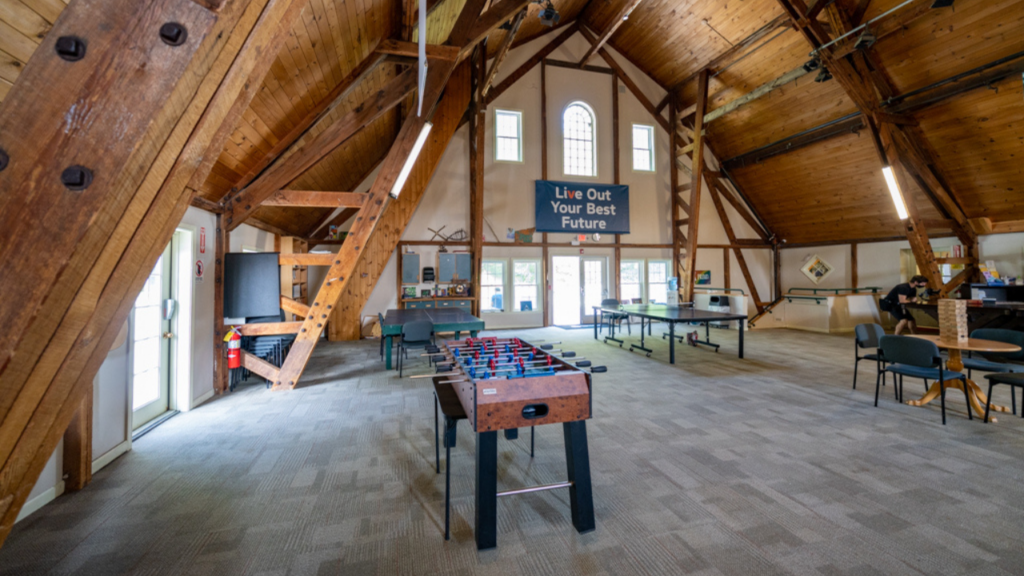When seeking treatment for substance use disorders in Massachusetts, understanding the differences between inpatient and outpatient care is crucial for making the right choice. Both options offer valuable support on the journey to recovery, but they differ significantly in structure, intensity, and suitability for individual needs.
Understanding the Structural Differences
Inpatient Treatment: Immersive Recovery Environment
Inpatient rehabilitation, also known as residential treatment, provides 24/7 care in a structured, supportive environment. At Swift River in Western Massachusetts, inpatient treatment means residing at our facility in the serene Berkshire Mountains, completely removed from daily stressors and triggers.
The key features of inpatient care include:
- Full-time commitment: Patients live at the facility for the duration of treatment, typically 30-90 days depending on individual needs
- Round-the-clock supervision and support: Medical professionals and therapists are available 24/7
- Structured daily schedule: Days are filled with therapeutic activities, counseling sessions, and wellness practices
- Immersive healing environment: Complete focus on recovery without outside distractions
Outpatient Treatment: Flexibility With Support
Outpatient programs allow individuals to receive treatment while continuing to live at home and potentially maintaining work or family responsibilities. These programs vary in intensity from standard outpatient care to more rigorous Intensive Outpatient Programs (IOP) or Partial Hospitalization Programs (PHP).
The distinguishing elements of outpatient care include:
- Variable time commitment: Treatment sessions several times per week, ranging from a few hours to full days
- Living at home: Patients return to their residence each evening
- Maintained daily responsibilities: Ability to continue work, school, or family obligations
- Integration of recovery skills: Immediate opportunity to apply coping strategies in real-world settings
Determining the Right Level of Care for You
Choosing between inpatient and outpatient treatment depends on several key factors unique to your situation. A thorough assessment by addiction professionals is essential for determining the most appropriate level of care.
Addiction Severity and Duration
The intensity and length of substance use often indicates the level of care needed:
- Severe addiction: Long-term or high-volume substance use typically requires the structure and safety of inpatient care
- Moderate substance use issues: Shorter-term or less intense substance use may be effectively addressed through outpatient programs
- Physical dependence: If medical detoxification is necessary, beginning with inpatient care is usually recommended
Co-Occurring Mental Health Conditions
Many individuals with substance use disorders also experience mental health challenges:
- Dual diagnosis needs: Complex co-occurring disorders often benefit from the comprehensive approach of inpatient treatment
- Stable mental health: Those with well-managed mental health conditions might succeed in outpatient settings
- Crisis situations: Acute mental health symptoms alongside addiction require the intensive support of inpatient care
Personal Circumstances and Support System
Life situations significantly impact treatment decisions:
- Strong support network: Those with supportive family and friends may do well in outpatient settings
- Unstable living environment: Individuals living with others who use substances or in high-stress homes benefit from the separation inpatient care provides
- Work and family obligations: Outpatient care allows continued fulfillment of essential responsibilities
- Financial considerations: Insurance coverage and personal resources may influence options
The Benefits of Inpatient Care at Swift River
At Swift River, our inpatient program offers unique advantages for those seeking comprehensive addiction treatment in Massachusetts.
Creating Distance From Triggers and Negative Influences
One of the most significant benefits of inpatient care is the opportunity to step away from environments that contribute to substance use:
- Physical separation from access to substances
- Removal from social connections associated with substance use
- Break from stressful environments or dynamics that trigger cravings
- Opportunity to gain perspective without daily pressures

24/7 Structured Support and Comprehensive Care
The immersive nature of inpatient treatment provides constant access to care:
- Medical professionals available around the clock to address withdrawal symptoms and other health concerns
- Immediate intervention for emotional crises or challenging moments
- Consistent therapeutic structure throughout the day
- Peer support from others on similar recovery journeys
- No gaps in care during critical early recovery phases
Swift River’s Immersive Healing Experience
Our inpatient program at Swift River leverages the natural beauty of Western Massachusetts to enhance recovery:
- Serene Berkshire Mountains setting: 250+ acres of natural landscape providing a peaceful backdrop for healing
- Comprehensive treatment approach: Evidence-based therapies combined with holistic wellness practices
- Adventure therapy: Outdoor activities that build confidence and provide therapeutic challenges
- Community connection: Bonding with peers in recovery through shared experiences
- Removal from daily stressors: Complete focus on personal growth and recovery skills
When Outpatient Care May Be The Right Choice
While inpatient treatment offers many advantages, outpatient care serves as the appropriate option for many individuals:
- Step-down care: Following completion of an inpatient program
- Mild to moderate addiction: Without severe physical dependence
- Strong support system: Reliable family or friends committed to supporting recovery
- Stable living environment: Safe, substance-free home setting
- Unavoidable responsibilities: Essential work or family obligations that cannot be paused
- Ongoing maintenance: Long-term recovery support after intensive treatment
Creating Your Personal Recovery Journey
Recovery isn’t one-size-fits-all, and many individuals benefit from a continuum of care that may include both inpatient and outpatient services at different stages. At Swift River, we offer a complete spectrum of care options, allowing for a seamless transition between levels as your needs evolve.
The most successful recovery journeys often begin with a higher level of care, such as inpatient treatment, followed by step-down services that provide ongoing support with increasing independence. This approach allows individuals to build a strong foundation in early recovery while gradually reintegrating into daily life.
Taking the Next Step
Deciding between inpatient and outpatient care represents a significant step toward reclaiming your life from addiction. At Swift River, our admissions specialists work closely with you to assess your specific needs and recommend the most appropriate treatment option.
If you or a loved one is struggling with substance use, we’re here to help. Our comprehensive assessment process considers all aspects of your situation to develop a personalized treatment plan that offers the best chance for lasting recovery.
Don’t wait to begin your journey to healing. Contact Swift River today at 888-451-5895 to speak with a compassionate admissions specialist who can guide you through your options and help you take that crucial first step toward a healthier, substance-free life.













